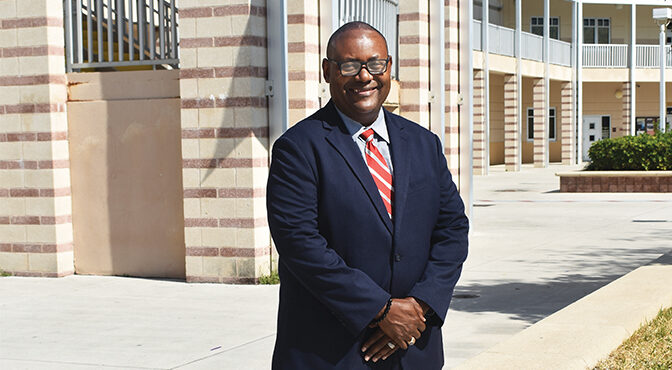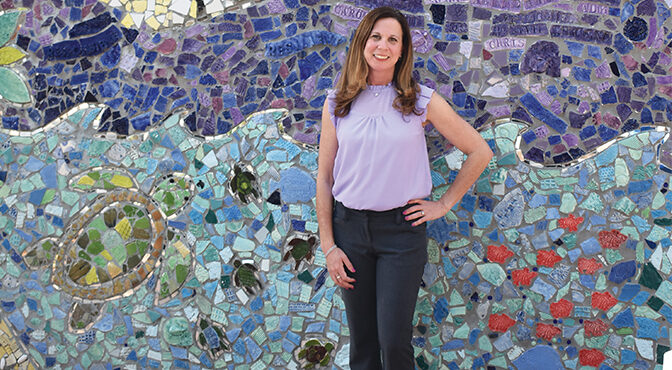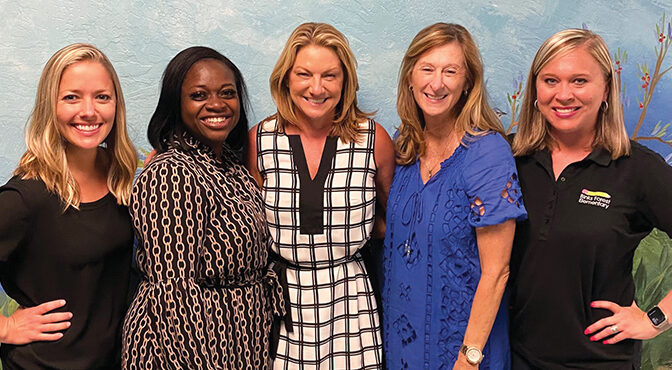Story by Deborah Welky | Photos by Denise Fleischman
Emerald Cove Middle School opened in 2007 as Wellington’s third middle school. Located at the intersection of State Road 7 and Stribling Way, it serves Wellington’s eastern neighborhoods, such as the large Olympia community it borders.
Since 2014, Dr. Eugina Smith Feaman has served as principal at Emerald Cove, arriving there after three years in the top position at Wellington Elementary School.
Feaman is a self-described “product of Palm Beach County schools.” When she graduated from the International Baccalaureate program at Suncoast High School, she already knew she was aiming for a career in education.
“Both my parents were educators in middle school, and I always had very influential teachers,” Feaman recalled.
One in particular, her John F. Kennedy Middle School math teacher Helen Brown, was particularly inspiring.
“She was firm but fair as a teacher,” Feaman said. “In fact, her teaching style is one I started adopting when I became a teacher. She was clear and caring. Her students always knew that she cared about their success.”
Yet it was Feaman’s parents, Virginia and Ulysses Smith, who first encouraged Feaman to follow their footsteps into the field of education. It was the same for her sisters, who are also educators.
“They wanted us to help others,” Feaman said. “They wanted for us to be people who gave back to our community and to be role models, as they were. They were staunch believers in the importance of education and doing well in school, and they instilled that in us. They always talked about education being that key to success. They were our biggest supporters.”
Feaman attended Hampton University in Hampton, Virginia, majoring in elementary education and English. Upon graduation, she returned to Palm Beach County and began working as a teacher at Bear Lakes Middle School, where they were looking for someone for their new intensive reading program. But Feaman continued her studies, later earning specialist and doctoral degrees in educational leadership from Argosy University in Sarasota.
As Feaman continued in her career, she was soon named an assistant principal at Bear Lakes, then promoted to principal at Cholee Lake Elementary School in Greenacres.
In 2011, Feaman became the principal at Wellington Elementary School, and in June 2014, when former Principal Dr. Nancy Lucas retired, Feaman took over as principal at Emerald Cove. “I had grown to love Wellington very much, and I have been here ever since,” she said.
Like many educators, the COVID-19 pandemic has presented her biggest challenge to date. “We had to go into a virtual setting, which was brand new, make sure students had what they needed in that time frame, and keep them safe,” Feaman said. “Now that we are back into the building, we have to make up for the gaps — academically, socially and emotionally.”
Emotional gaps are a real concern when it comes to middle schoolers, as they are typically highly social.
“Remote learning really has affected them socially and emotionally,” Feaman said. “Students had more screen time, which is both a positive and a negative thing, and not being able to interact with their peers affected their social skills. Also, in many cases, many were at home by themselves and able to do things without having structure. Kids are kids. They look for guidance from adults; they look for structure from adults. They do have other influences — phones and computers, as well as influences from within the community — and they are exposed to more things than in years past, but they are still children who are looking for love, nurturing and guidance from the adults in their lives.”
Since Feaman took the reins at Emerald Cove, the school has added its Pre-Information Technology academy, a technology-based choice program at the school, as well as becoming an Advancement Via Individual Determination (AVID) school.
“Those are two high points, added to support our students academically,” Feaman said. “We also have very successful visual and performing arts classes. For the first time in the school’s history, our band has received a Superior rating, which was determined by a panel of judges comprised of other band directors.”
Moving forward, Feaman plans to continue her work helping her middle school students thrive.
“I hope to help as many children be academically successful as possible,” Feaman said. “I would like to grow some of our culturally aware programs to make sure we have a welcoming and inclusive environment, and I’d like to guide and support my teachers and staff members so they can do the best for their students.”
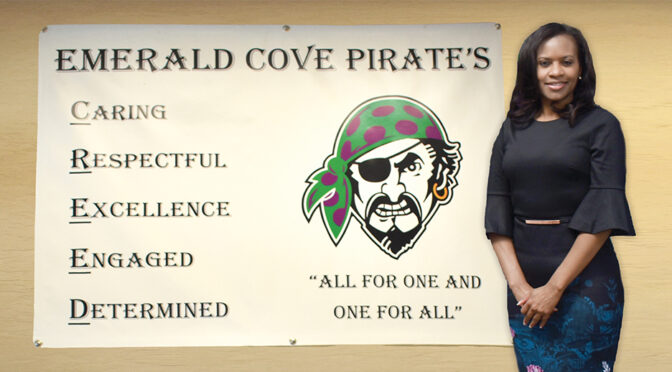
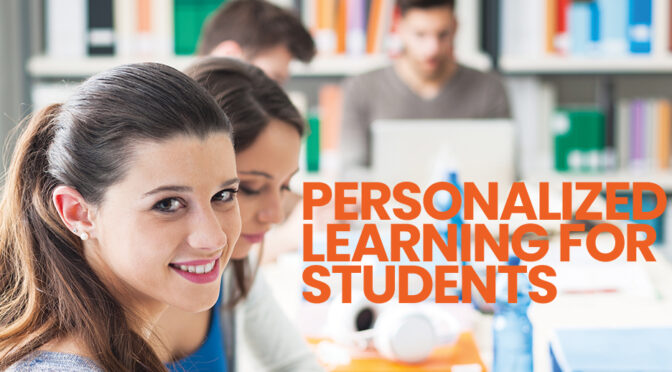
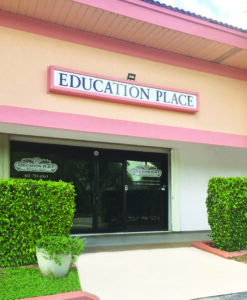
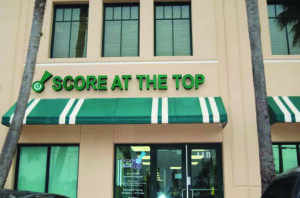
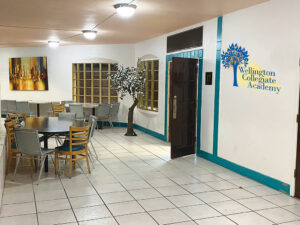
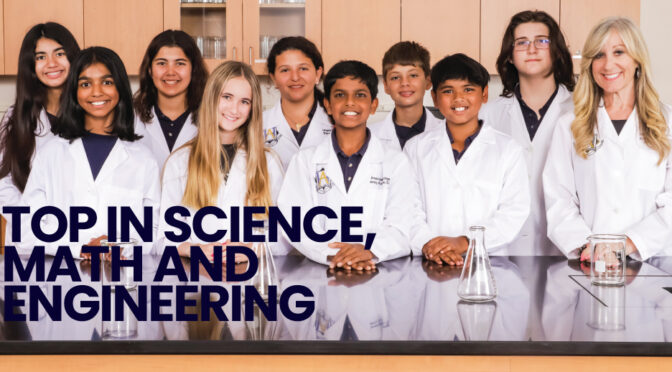
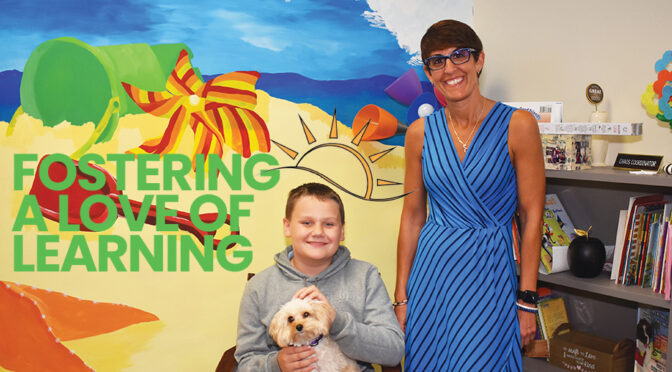
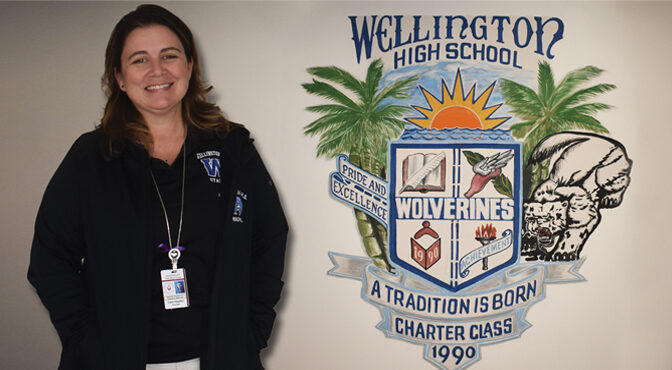
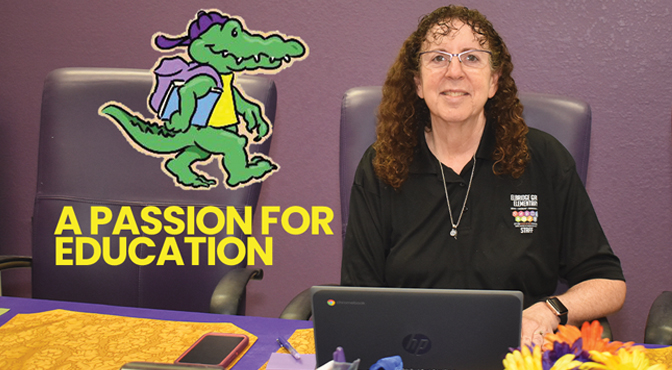 A Passion For Education
A Passion For Education